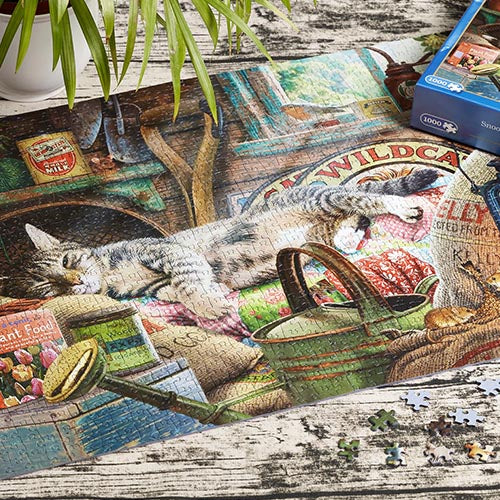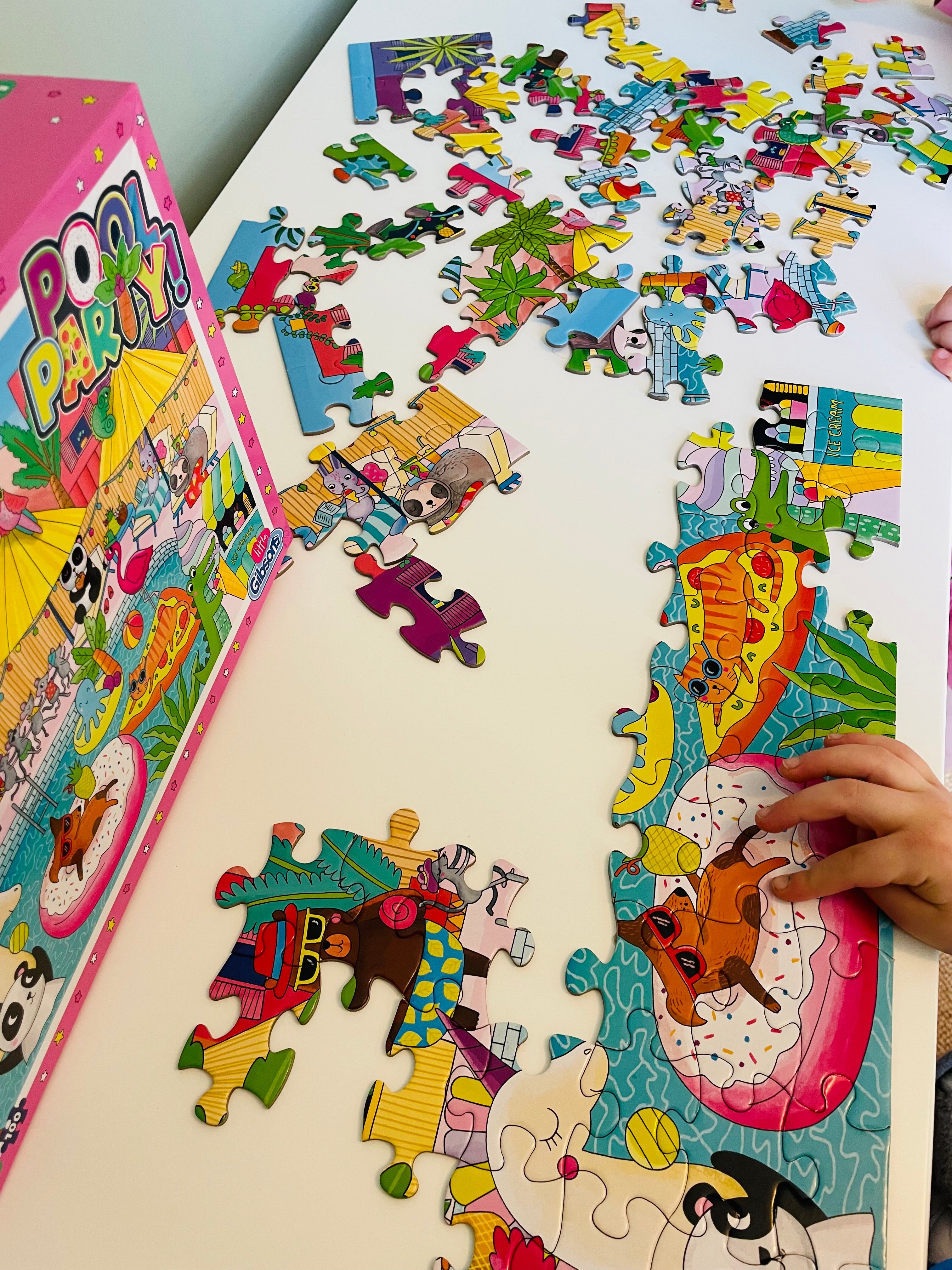
In the UK, nearly 1 million people with dementia and their families struggle to get the care that they deserve. However, with the right support, people with dementia can live a good quality of life, doing what matters most to them for as long as possible.
Dementia Action Week 2022 will run from 16th May - 22nd May this year, providing as an organised national event that is the biggest and longest running awareness campaign by Alzheimer’s Society. This year’s campaign theme is diagnosis, following on from diagnosis rates falling to a five-year low. This national event encourages people to take action to improve the lives of those affected by dementia, as well as finding guidance and support and feeling empowered to take the next step.
Alzheimer’s Society’s have created a video campaign for Dementia Action Week this year, called ‘It’s not called getting old’. You can view the video here:
Recent research shows that the misconception that symptoms like memory loss are a sign of normal ageing is the biggest barrier to people seeking a dementia diagnosis. Getting a dementia diagnosis can be daunting, but it is better to know, in which 91% of people affected by dementia would agree.
Let’s change how we perceive and treat dementia, choosing to get the support that is necessary against this illness without the stigma that it carries.
Jigsaw Puzzles for People with Dementia
Our Piecing Together jigsaw puzzle collection was created to provide those living with dementia with a fun activity that can be enjoyed alone or with a loved one. The large, easy to handle pieces and beautiful images have been carefully designed to be age-appropriate for adults, yet accessible for all.
There are 12 Piecing Together puzzle designs available, ranging from 12-40 extra large pieces, and the puzzles can be completed inside the box which provides a frame to work within and makes it easy to store. Not only does completing a jigsaw puzzle aid motor skills, but we have specifically chosen puzzle images that either evoke fond memories from the mid-20th century or beautiful sights of nature and the countryside.
Back in 2021, we spoke with Michelle from Dementia Prevention UK and Amelia from Country Court Care to give us their insights on working with people who have dementia.
Could you tell us a little bit about dementia?
Michelle: Dementia is an umbrella term for a symptom of some neurodegenerative diseases. It may include memory loss, change in behaviour, mood or motor functions. Some of the diseases are Alzheimer's, Parkinson's and Huntington's.
Amelia: Dementia is the umbrella term for impaired ability to remember, think, or make decisions that interferes with doing everyday activities. Alzheimer’s is the most common.
What is it like to work with people who have dementia?
Michelle: Working with people living with dementia is very rewarding as there's so much you can do in order to keep them engaged and happy. All you need to be is creative with your activities. For example one activity might be working with them on Gibsons puzzles; each person can participate according to their level and interest. There are positive times and less positive times while working with people living with dementia. As this disease is progressive, it is sad to see people who deteriorate and slowly become a shell of themselves. It is also sad to see the families lose, from visit to visit, another piece of the person their loved one used to be.
Amelia: It can be very demanding but it also very satisfying as no two days are the same.

How do you approach the different people that you work with?
Michelle: People who live with dementia are just like anyone else. They are looking for comfort, reassurance and support; they deserve to be treated with dignity and respect. Living with dementia can be very scary. People living with dementia know that there is something different about their abilities but they can’t point it out; this is very confusing. Our role is to make them feel comfortable, listened to and seen. Not talk at them but with them, involve them in making decisions and making sure that we are making an effort to connect their thoughts, even if they are no longer capable of doing so.
Amelia: It depends on the persons care plan and how they are as an individual. Our approach is ‘person centred’ meaning we involve the person with Dementia, putting them first and focusing on what they can do, rather than disabilities or impairments etc.
We have introduced our Piecing Together Collection as conversation starters for those with dementia. How else do you think jigsaw puzzles can help?
Michelle: It is very important to keep working with your hands. Building a puzzle is part of the fine motor skills that can be helpful in getting dressed, eating or brushing a person’s hair. Without using one's hands, that ability might deteriorate and be lost. You can build the puzzle as part of small group work. Once people have finished the puzzle, they can draw or write about their experience and what the picture reminded them of. Once the puzzle is done, people can share a story - true or fictional - about the picture. You can have a competition between two groups or individuals who can finish the puzzle first.
Amelia: It is important to keep the brain stimulated… as well as having fun! It’s a great activity as it’s not too demanding for the residents and they can go at their own pace.

Spirit of the 60s - 40 Extra Large Piece Jigsaw Puzzle: £13.00
What are some other good ways to help loved ones who suffer from dementia?
Michelle: I would suggest empowering a person living with dementia to do as much as they can in order for them to hold on to their abilities and skills for longer. Think about this before you act: Anything you do for me, you take away from me. It is natural to offer help, or do instead of. But it is very important to refrain from doing so. A person should keep on preparing a cup of tea, cut fruit, make a sandwich or fold a shirt. Once you do those things for them, you take away the opportunity for them to keep those skills. I would also refrain from judgement; a person living with dementia does not choose to be difficult, forgetful or unpleasant. Their lives are scary and lonely; most of the time they are trying to give meaning to things that are happening around them. Show compassion, respect and patience. And know when it is time for you to ask for help caring for a person leaving with dementia.
Amelia: Reminiscence – going through old photographs to jog their memory. This could be of famous people/places to adverts that ran during their younger years. Music and Dementia go hand in hand and is always a big hit with those living with Dementia. Patience is key as those with Dementia tend to forget or take longer to process something new.
What is the number one thing that you wish other people knew about dementia?
Michelle: Dementia is not a normal part of ageing. There are many lifestyle changes you can make in order to prevent or delay dementia. Visit our website or get in touch - Dementia Prevention UK
Amelia: How soul destroying it must be for the individual living with Dementia. To treat them with respect and that just because they have Dementia doesn’t mean that they are wrong about everything – they can have good and bad days just like everyone else. Not being able to remember things can be scary and anxiety inducing/frustrating for them as things may not feel familiar. Don’t take anything personally.

The Garden - 24 Extra Large Piece Jigsaw Puzzle: £13.00
You can learn more about Dementia Action Week and how to get involved on Alzheimer Society’s website here.
For more information and resources about dementia and how you can support those affected by it, go to:
Piecing Together for Dementia Action Week
The Piecing Together Collection was created to provide those living with dementia, limited fine motor skills or visual impairments with a fun activity that can be enjoyed alone or with a loved one. It is estimated that around 57.4 million people are living with dementia around the world, a disease that can be isolating for both the sufferer and their family members, friends or carers. It is estimated that this number will rise to 152.8 million by 2050.
Our goal was to create a puzzle that can bring people together during these difficult times. So we undertook thorough research and development when designing this collection, which included care home visits, liaising with Age UK Centres and teaming up with Zoe Wyrko, Consultant Geriatrician and member of the expert team on Channel 4's award-winning TV show, Old People's Home for 4 Year Olds.
The puzzle images were chosen specifically to evoke fond memories from years gone by to spark conversations with loved ones and reminisce around topics that may be long forgotten.
Here you can view some of the products that we have in our range.

Dogs - 24 Extra Large Piece Jigsaw Puzzle: £13.00

Days Out - 12 Extra Large Piece Jigsaw Puzzle: £13.00

Mobile Shop - 40 Extra Large Piece Jigsaw Puzzle: £13.00
Find our full Piecing Together Collection here.
Share the Love!
We would love to see your finished jigsaw puzzle. You can tag us on social media to share your photos and videos with the Gibsons team!
Twitter: @Gibsons_puzzles
Instagram: @gibsons_puzzles
TikTok: @gibsons_puzzles




0 comments